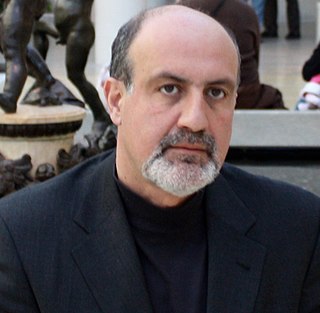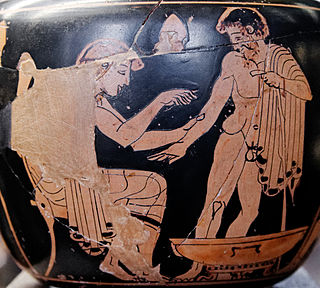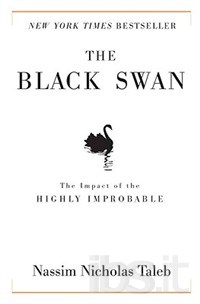
In philosophy, empiricism is a theory that states that knowledge comes only or primarily from sensory experience. It is one of several views of epistemology, along with rationalism and skepticism. Empiricism emphasizes the role of empirical evidence in the formation of ideas, rather than innate ideas or traditions. However, empiricists may argue that traditions arise due to relations of previous sense experiences.

The scientific method is an empirical method of acquiring knowledge that has characterized the development of science since at least the 17th century. It involves careful observation, applying rigorous skepticism about what is observed, given that cognitive assumptions can distort how one interprets the observation. It involves formulating hypotheses, via induction, based on such observations; experimental and measurement-based testing of deductions drawn from the hypotheses; and refinement of the hypotheses based on the experimental findings. These are principles of the scientific method, as distinguished from a definitive series of steps applicable to all scientific enterprises.

The problem of induction is the philosophical question of what are the justifications, if any, for any growth of knowledge understood in the classic philosophical sense—knowledge that goes beyond a mere collection of observations—highlighting the apparent lack of justification in particular for:
- Generalizing about the properties of a class of objects based on some number of observations of particular instances of that class or
- Presupposing that a sequence of events in the future will occur as it always has in the past. Hume called this the principle of uniformity of nature.
The hypothetico-deductive model or method is a proposed description of the scientific method. According to it, scientific inquiry proceeds by formulating a hypothesis in a form that can be falsifiable, using a test on observable data where the outcome is not yet known. A test outcome that could have and does run contrary to predictions of the hypothesis is taken as a falsification of the hypothesis. A test outcome that could have, but does not run contrary to the hypothesis corroborates the theory. It is then proposed to compare the explanatory value of competing hypotheses by testing how stringently they are corroborated by their predictions.
Inductive reasoning is a method of reasoning in which the premises are viewed as supplying some evidence, but not full assurance, of the truth of the conclusion. It is also described as a method where one's experiences and observations, including what are learned from others, are synthesized to come up with a general truth. Many dictionaries define inductive reasoning as the derivation of general principles from specific observations, although there are many inductive arguments that do not have that form.

Nassim Nicholas Taleb is a Lebanese-American essayist, scholar, mathematical statistician, and former option trader and risk analyst, whose work concerns problems of randomness, probability, and uncertainty. His 2007 book The Black Swan has been described by The Sunday Times as one of the twelve most influential books since World War II.
Early Islamic law placed importance on formulating standards of argument, which gave rise to a "novel approach to logic" in Kalam . However, with the rise of the Mu'tazili philosophers, who highly valued Aristotle's Organon, this approach was displaced by the older ideas from Hellenistic philosophy. The works of al-Farabi, Avicenna, al-Ghazali and other Persian Muslim logicians who often criticized and corrected Aristotelian logic and introduced their own forms of logic, also played a central role in the subsequent development of European logic during the Renaissance. The use of Aristotelian logic in Islamic theology again began to decline from the 10th century, with the rise of Ashʿari theology to the intellectual mainstream, which rejects causal reasoning in favour of clerical authority.
The history of scientific method considers changes in the methodology of scientific inquiry, as distinct from the history of science itself. The development of rules for scientific reasoning has not been straightforward; scientific method has been the subject of intense and recurring debate throughout the history of science, and eminent natural philosophers and scientists have argued for the primacy of one or another approach to establishing scientific knowledge. Despite the disagreements about approaches, scientific method has advanced in definite steps. Rationalist explanations of nature, including atomism, appeared both in ancient Greece in the thought of Leucippus and Democritus, and in ancient India, in the Nyaya, Vaisesika and Buddhist schools, while Charvaka materialism rejected inference as a source of knowledge in favour of an empiricism that was always subject to doubt. Aristotle pioneered scientific method in ancient Greece alongside his empirical biology and his work on logic, rejecting a purely deductive framework in favour of generalisations made from observations of nature.

Ancient Greek medicine was a compilation of theories and practices that were constantly expanding through new ideologies and trials. Many components were considered in ancient Greek medicine, intertwining the spiritual with the physical. Specifically, the ancient Greeks believed health was affected by the humors, geographic location, social class, diet, trauma, beliefs, and mindset. Early on the ancient Greeks believed that illnesses were "divine punishments" and that healing was a "gift from the Gods". As trials continued wherein theories were tested against symptoms and results, the pure spiritual beliefs regarding "punishments" and "gifts" were replaced with a foundation based in the physical, i.e., cause and effect.
The following outline is provided as an overview of and topical guide to epistemology:

The black swan theory or theory of black swan events is a metaphor that describes an event that comes as a surprise, has a major effect, and is often inappropriately rationalised after the fact with the benefit of hindsight. The term is based on an ancient saying that presumed black swans did not exist – a saying that became reinterpreted to teach a different lesson after the first European encounter with them.

The Black Swan: The Impact of the Highly Improbable is a 2007 book by author and former options trader Nassim Nicholas Taleb. The book focuses on the extreme impact of rare and unpredictable outlier events—and the human tendency to find simplistic explanations for these events, retrospectively. Taleb calls this the Black Swan theory.
The ludic fallacy, proposed by Nassim Nicholas Taleb in his book The Black Swan (2007), is "the misuse of games to model real-life situations". Taleb explains the fallacy as "basing studies of chance on the narrow world of games and dice". The adjective ludic originates from the Latin noun ludus, meaning "play, game, sport, pastime".
Epistemology or theory of knowledge is the branch of philosophy concerned with the nature and scope (limitations) of knowledge. It addresses the questions "What is knowledge?", "How is knowledge acquired?", "What do people know?", "How do we know what we know?", and "Why do we know what we know?". Much of the debate in this field has focused on analyzing the nature of knowledge and how it relates to similar notions such as truth, belief, and justification. It also deals with the means of production of knowledge, as well as skepticism about different knowledge claims.
The Empiric school of medicine was a school of medicine founded in Alexandria the middle of the third century BCE. The school was a major influence on ancient Greek and Roman medicine. The school's name is derived from the word empeiria because they professed to derive their knowledge from experiences only, and in doing so set themselves in opposition to the Dogmatic school. Serapion of Alexandria, and Philinus of Cos, are regarded as the founders of this school in the 3rd century BC. Other physicians who belonged to this sect were: Apollonius of Citium, Glaucias, Heraclides, Bacchius, Zeuxis, Menodotus, Theodas, Herodotus of Tarsus, Aeschrion, Sextus Empiricus, and Marcellus Empiricus. The sect survived a long time, as Marcellus lived in the 4th century. The doctrines of this school are described by Aulus Cornelius Celsus in the introduction to his De Medicina.
Empirica Capital LLC was a hedge fund founded in 1999 by Nassim Nicholas Taleb in partnership with Mark Spitznagel, that used Taleb's black swan strategy. The firm closed in 2005 as Taleb took time off for health reasons.

Antifragile: Things That Gain From Disorder is a book by Nassim Nicholas Taleb published on November 27, 2012, by Random House in the United States and Penguin in the United Kingdom. This book builds upon ideas from his previous works including Fooled by Randomness (2001), The Black Swan (2007–2010), and The Bed of Procrustes (2010–2016) and is the fourth book in the five-volume philosophical treatise on uncertainty titled Incerto. Some of the ideas are expanded in Taleb’s fifth book Skin in the Game: Hidden Asymmetries in Daily Life (2018).
The Lindy effect is a theory that the future life expectancy of some non-perishable things like a technology or an idea is proportional to their current age, so that every additional period of survival implies a longer remaining life expectancy. Where the Lindy effect applies, mortality rate decreases with time.

Logic is the systematic study of valid rules of inference, i.e. the relations that lead to the acceptance of one proposition on the basis of a set of other propositions (premises). More broadly, logic is the analysis and appraisal of arguments.
Skin in the Game: Hidden Asymmetries in Daily Life is a 2018 nonfiction book by Nassim Nicholas Taleb, a former options trader with a background in the mathematics of probability and statistics.









